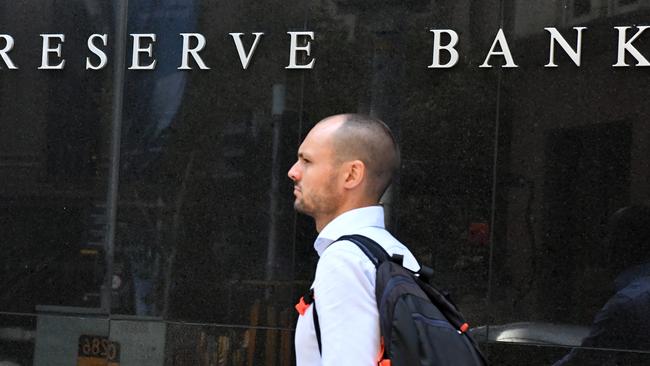
The central bank made clear on Thursday that the buy now, pay later industry was still too peripheral to warrant that sweeping reform, but its rapid growth means conversations around potential criteria to trigger a change in policy are live.
The RBA — as part of its broader Review of Retail Payments Regulation — is assessing when it would be in the public interest to remove the no-surcharging rules that BNPL players have imposed on retailers.
The landscape is getting fiercer as big banks figure out how to navigate the consumer BNPL shift.
Commonwealth Bank this week came out swinging in the BNPL sector, unveiling a direct customer pay-in-instalments offer that will see merchants charged significantly less than using Afterpay and Zip. CBA will charge retailers the same as a credit card transaction, about 1.4 per cent, which is a steep discount on Afterpay’s average fee of 4 per cent for transactions and providing lead generation for sales.
The RBA’s analysis — released in its bulletin on Thursday — was insightful but it also wants the BNPL industry to work on providing more timely data on transactions and fees charged.
A survey by the RBA in late 2019 found if consumers were confronted with a hypothetical 4 per cent surcharge, about half of BNPL users said they would switch to an alternative payment method. Some 40 per cent said they would pay the surcharge and about 10 per cent said they would cancel the purchase.
Still, those results are unlikely to deter the RBA from changing the BNPL surcharging policy if strong growth in the sector continues.
The bulletin estimated there were almost 20 BNPL services in the Australian market offered by more than a dozen providers, versus just a handful of providers a few years ago. It looked at company reports for the six months ended December 31, and found the number of merchants accepting BNPL payments had more than doubled across the two largest providers over the past two years.
“Based on recent public disclosures, the value of transactions processed by some of the large BNPL providers grew by over 50 per cent in the second half of 2020 compared to the same period a year earlier,” the RBA said.
The report tempered that by saying despite the growth, BNPL payments were equivalent to less than 2 per cent of the total value of Australian debit and credit card purchases in 2020.
If the size of the BNPL sector rises relative to the overall domestic payments pool, allowing surcharging is firmly on the RBA agenda, in a similar way as it reformed the credit card market in the early 2000s.
Competition on BNPL fees may have some impact ahead of that as CBA gives merchants and retailers a local lower-cost alternative.
AMP clock ticks
There’s just 11 days remaining for AMP and US suitor Ares Management to seal a binding deal for the sale of a controlling stake in the private markets part of its capital division. An announcement is expected before March 29, when a 30-day exclusivity period ends.
The indicative transaction terms were outlined by 172-year-old AMP late last month, and would see Ares acquire 60 per cent of the $2.25bn joint venture and take management control. AMP would own the remaining stake.
Ructions in AMP’s real estate unit can’t be helping deliberations, but the parties are continuing to push ahead.
Those headaches include the AMP Capital Diversified Property Fund, where an independent board committee had recommended a proposal to merge with the Dexus Wholesale Property Fund. AMP Capital has put forward an alternative proposal to the merger, and any transaction is subject to a vote of fund unitholders.
Separately, AMP chairman Debra Hazelton will start meeting with shareholders and proxy advisers next week to talk through the proposed Ares deal, and also gauge any concerns as the group looks to avert a second strike against its pay report.
Hazelton will be flanked by the head of AMP’s remuneration committee, Michael Sammells, in those talks, ahead of next month’s annual general meeting. The next few weeks will prove tense for AMP’s board and long-suffering shareholders on several fronts.
If AMP does seal the binding Ares joint venture deal, investors will want clarity and a commitment from the company about the size of a capital return. This time around — unlike when AMP offloaded its life insurance business — shareholders will have to sign off on the deal.
Medibank search
Medibank chairman Mike Wilkins has turned to a familiar headhunting firm in Russell Reynolds Associates to seek out the health insurer’s next chief executive.
Russell Reynolds was also brought in by Wilkins last year for the QBE Insurance CEO search, where he is also chairman. The process at Medibank should be a lot smoother, given an expected orderly handover by incumbent CEO Craig Drummond.
He last month flagged his June 30 retirement from the top job, after about five years in the role.
Medibank’s net profit for the six months ended December 31 surged 27.3 per cent to $226.4m, versus the prior corresponding period.




It looks like a matter of when, not if, the Reserve Bank will move on the buy now, pay later sector to force industry players to allow retailers to recoup hefty transaction costs.